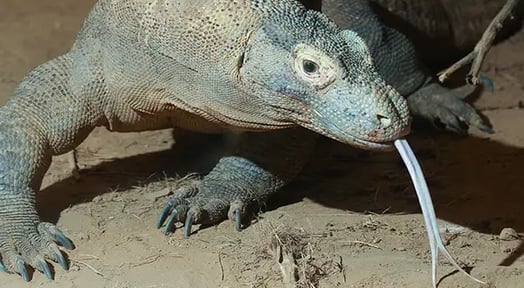Tempo, a Philippine newspaper, first reported that the Indonesian government will “temporarily” close Komodo island — home of Komodo dragons (the largest living liz in exiz) — for a year starting January 2020.

The decision came after the arrests of 9 men who allegedly stole 41 dragons (which can be sold abroad for $35k each), as well as other endangered birds and wild cats, to be used in traditional medicines.
Animal smuggling is an attractive business
Each year hundreds of millions of animals are illegally poached from the wild to be sold as food, clothing, medicine — and even souvenirs.
But one environmental ministry official said that this is the first time he had heard of Komodo dragons — which have existed only in Indonesia for centuries — being trafficked for those purposes.
The long lifespan of the oversized serpent with feet is partly attributed to its fatally venomous bite — and because their blood is so rich with peptides that they’re actually immune to their own death chomp.
Keyword: OWN
While some scientists believe it’s possible to turn these peptides into human antibiotics, Bryan Fry, associate biology professor for the University of Queensland, told Wapo the process isn’t exactly as easy as 1,2,3.
According to Fry, it could only work if the compounds within the blood were purified, and even then would still have high odds of a “violent allergic reaction.”
“If this is in fact what is fueling the trade, it is in the same destructive fantasy land as the Asian appetite for rhino horns as aphrodisiacs.”
